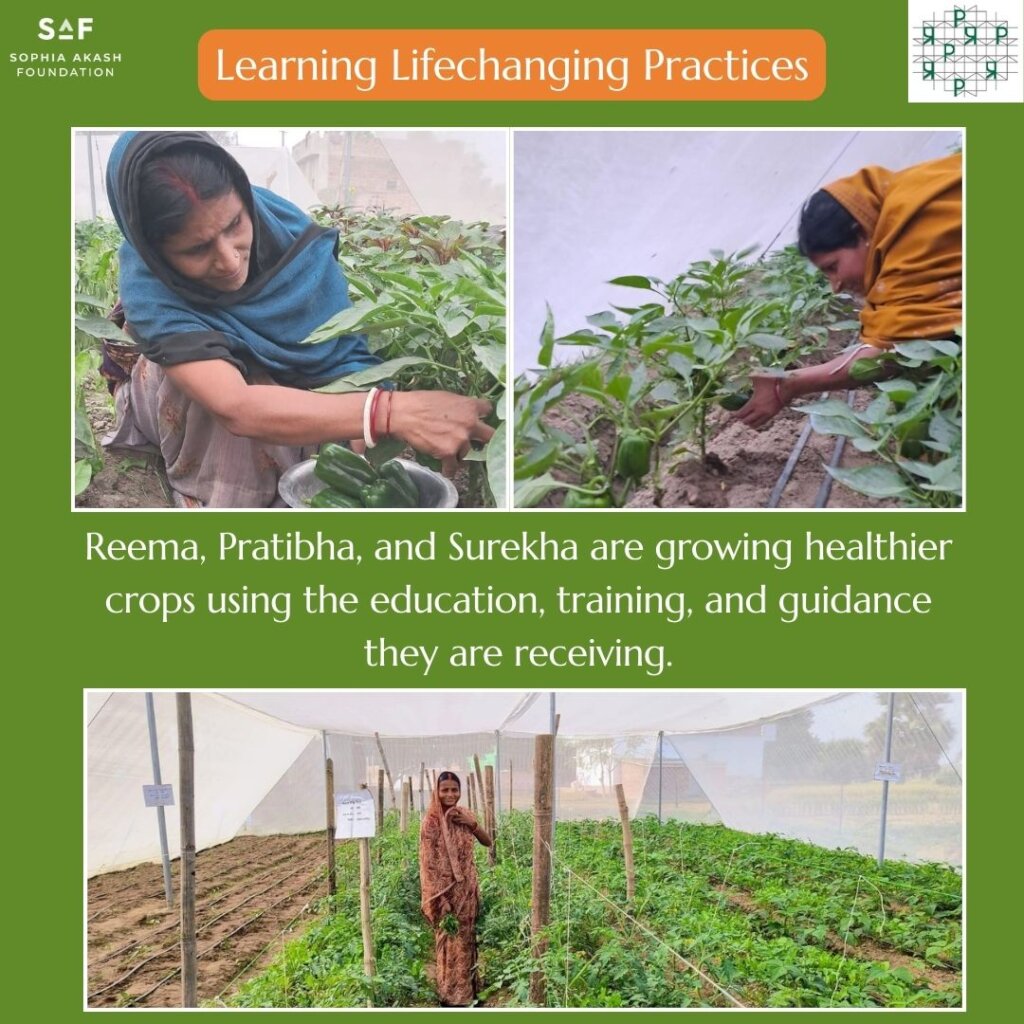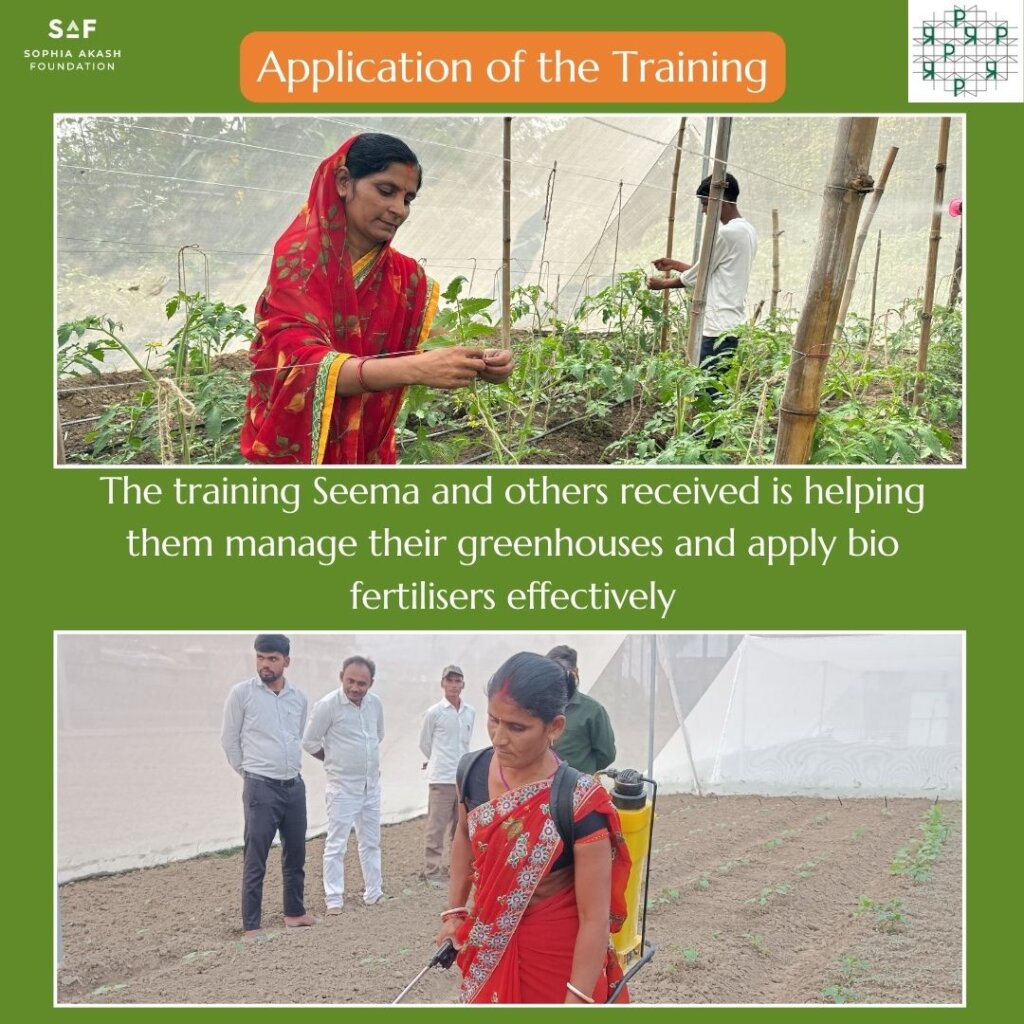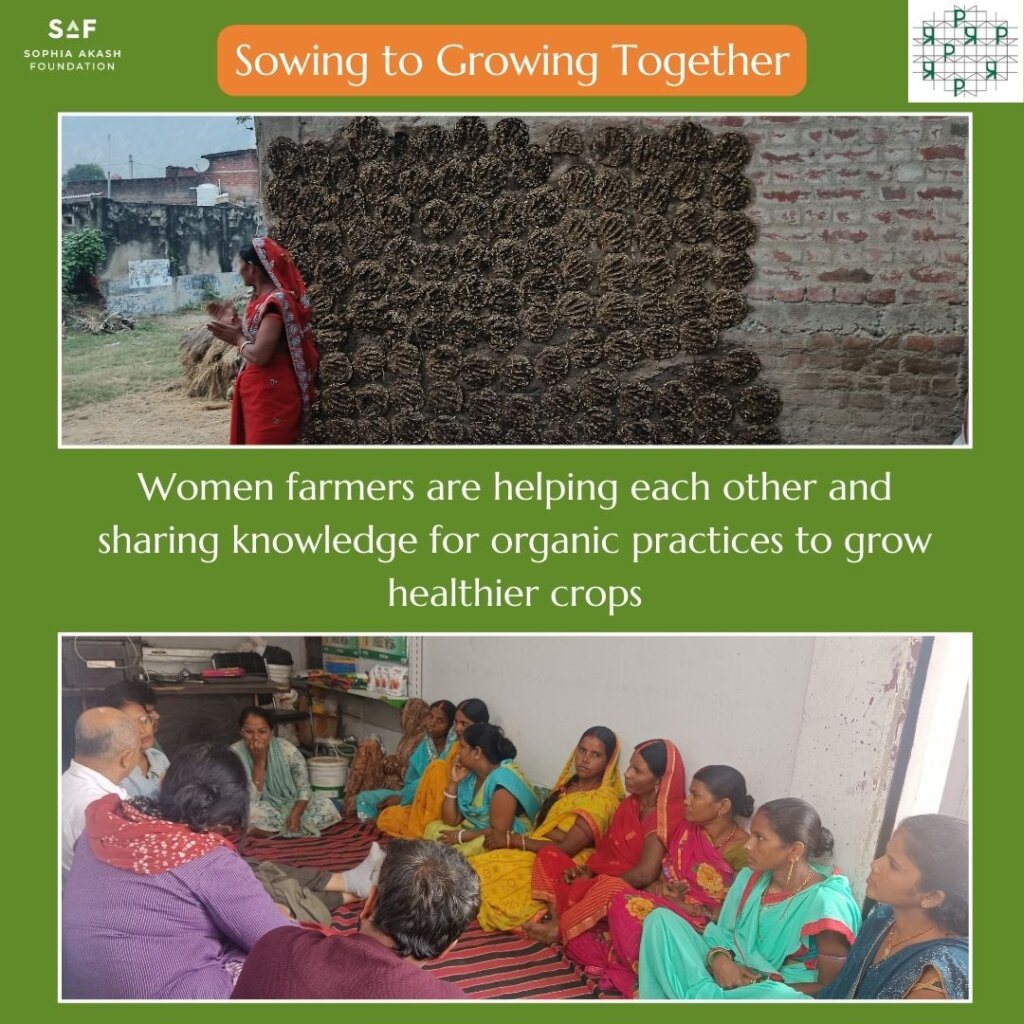By Shibapriya Dutta | Program Manager
Your incredible and generous support has enabled another 40 vulnerable women in rural Nawada, Bihar, India to transform their farming livelihoods for better, more climate-resilient futures.
With your incredible support, Reema, Pratibha, Surekha and 37 other women farmers living in the water scarce villages of Nawada (Bihar, India) started their inspiring progress towards a sustainable farming livelihood last summer. In October 2024 we reported how quickly they were learning to make use of their unique climate-resilient, protected environments to grow healthier crops.
With the help of the on-the-ground training organised with your amazing support, they continue to learn how to address their many challenges faced over countless years of failed crops, ever increasing temperatures and ever reducing rainfalls that increasingly lead to longer periods of drought.
By using their climate-resilient greenhouses, they are now growing their crops with greater assurance, increased resilience against such climate change related hardships while constantly gaining knowledge and confidence in their abilities to adapt to more sustainable farming practices.
During their first, tentative efforts they have already started reaping the benefits of their hard work, their courage in choosing to work with modern, more sustainable farming methods and with your generous support they are also gaining in stature and confidence in their own decision making, thus presenting them with a voice, greater agency and increased respect and standing in their families as well as their village communities.
During their first crop season, using the unique properties of their climate-resilient greenhouses, they have learnt how to prepare their soil beds so that their seeds and saplings remain naturally protected from sudden heavy rainfalls, weed infestation or disease carrying pests.
By learning how to produce and apply natural, bio-organic fertilizers made from ingredients found abundantly on their farms, such as cow dung and urine, they have learnt how to nurture as well as protect their crops against pests or diseases without the use of harmful, chemical based fertilisers or pesticides.
Having suffered from increasing water scarcity for many years, they have now also learnt how to make much more frugal use of their precious supply of water by using drip irrigation which delivers the water directly to the roots of their plants as opposed to their traditional method of flood irrigation which directed the water to indiscriminately soak their entire field.
This ensures that the water is applied only when and where needed, always with the right quantity and exactly near where the growing crops' roots and surrounding soil will benefit most. The resulting reduction in their use of water of almost 80% when compared with their traditional farming methods, also helps remove one of their biggest challenges and ever present vulnerability.
By also learning how to use healthier seeds or saplings, they are seeing near 100% germination rates for their crops (as opposed to the 60% or 70% they encounter in their open land farming) thus ensuring that their hard earned money is invested in a crop that will provide a healthy and abundant harvest for them every time and a sustainable return for their amazing efforts in very demanding circumstances.
These women have also learnt how to grow a variety of vegetables such as french beans, european cucumbers, capsicums, tomatoes, berries, etc. that are always in constant demand in their local villages, ensuring that they are able to sell all of their harvests in a timely manner, at a preimium price and without any wastage.
Because their harvests are also considerably healthier and richer, these farmers such as Reema, Pratima and Surekha are also becoming known throughout their villages and nearby districts for growing and supplying best quality produce.
This is helping them to secure their highest source of income to date from any of their farming activities. This amazing turnaround in their otherwise desperate struggles to sustain their livelihoods, means that they can now feed their families without fear of rationing, reinvest in their next crop, while also start saving towards a better education for their children.
So let’s see how these women and their families are benefitting….
As a result we have been moved to provide the same opportunities, learnings and guidance to another 40 vulnerable women starting this spring. Please continue to support their efforts. Your generosity is directly helping to transform their lives, help them become considerably more climate resilient whilse also increasing the sustainability of their otherwise fragile environments.
You are all champions of remarkable change and we very much look forward to reporting next time how these women have started their remarkable journies towards a better, climate-resilient future next time with your invaluable support.
Thank you from all of us at Sophia Akash Foundation.
Links:
By Shibapriya Dutta | Program Development Officer
By Shibapriya Dutta | Program Development Officer
Project reports on GlobalGiving are posted directly to globalgiving.org by Project Leaders as they are completed, generally every 3-4 months. To protect the integrity of these documents, GlobalGiving does not alter them; therefore you may find some language or formatting issues.
If you donate to this project or have donated to this project, you can receive an email when this project posts a report. You can also subscribe for reports without donating.
Support this important cause by creating a personalized fundraising page.
Start a Fundraiser

